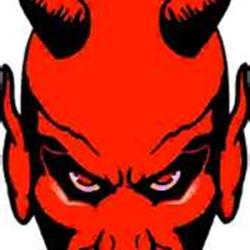Lectionary Reflections
Year C
Jeremiah 23:1-8
November 20-26
Jeremiah is an odd book. It is filled with all manner of oracles, parables, poems, stories, historical memories, all jumbled together sometimes in ways that seem almost random. To grasp the overarching themes is especially important, lest one get swallowed in the individual pericopes. No biblical book better exemplifies the dangers of losing the forest for the trees. The forest of Jeremiah is at the base a distinctly theological one: the God who can and does destroy Judah for its rejection of God and its abuse of marginalized ones is the same God who can work a new thing for that same people. The diversity of God's actions with the people must be kept always in mind whenever one reads a text from Jeremiah.
Chapter 23:1-8 (the lectionary lists only 1-6, but it is important to include 7-8 here, as I will try to make clear) is no exception. It begins with a rather standard woe oracle, a prophetic attack on an individual or group that has denied or impeded the work of God in the world. The objects of this woe are the "shepherds who destroy and scatter the sheep of my pasture." As Ezekiel 34 will make abundantly certain, these poor shepherds are in fact the kings of Israel and Judah.
The kings that Jeremiah experienced during his time of prophecy, especially those following the death of the revered Josiah in 609 B.C.E., have been nothing but pathetic and evil shepherds of the people. Rather than tending the flock, they have "scattered and driven them away" (23:2). Ezekiel goes further in his portrayal of these foul shepherds, would-be kings, who "eat the fat, clothe yourselves with the wool, and slaughter the fatlings" (Ezek. 34:3). These final kings of Judah are more wolf than shepherd, sorry excuses for helpful, godly rulers.
As a result of the evil the kings have perpetrated on God's people, more specifically because "they have not attended to their sheep," so "God will now attend to their evil doings." Their lack of attention leads directly to God's angry attention to them. It could be said that the oracle is a summation of the sad collapse of Judah after the death of Josiah. From 609 B.C.E. until the first attack of the Babylonians in 597 B.C.E., Josiah's son, Jehoiakim, attempted to rule Judah. Jeremiah was his public antagonist, accusing him of foolish pretentions (22:13-15), and comparing him most unfavorably with his righteous father (22:15-17). This arrogant king apparently tried to revolt against the powerful Babylonians who responded swiftly with a siege of Jerusalem in 598 B.C.E. Jehoiakim died in the siege (was he murdered?), and his son Jehoiakin ascended the throne, or at least what was left of it. His first and only act as king was to surrender to Nebuchadnezzar to be carted off to Babylon (2 Kgs. 24:14-15).
The Babylonians installed their own puppet king, Zedekiah, and for the next ten years there was a kind of peace in Judah. But for reasons not completely clear, Zedekiah was urged to revolt against his Babylonian overlords; the result was disaster for Judah. The Babylonian armies came in force, destroyed Jerusalem, and blinded Zedekiah just after they murdered all his sons, and dragged him to Babylon. All this was witnessed by Jeremiah. Little wonder that he would call such kings evil shepherds!
But suddenly and surprisingly in our text, the mood changes radically. Three promises of a dynastic variety are announced by God. First, a remnant of the scattered sheep, who have been for too long without a real shepherd, will be returned to their land from the distant places where they have been living. But note: this will be the work of God alone (23:3). New shepherds will be found only after the work of God. This promise recognizes the appalling dangers of kings (see 1 Sam. 8:10-18), dangers all too real in the eyes of the Judeans. God's free and loving actions must precede any crowning of a new king. In vs. 4 a new king is promised, but this time a king who will not cause "fear" or "dismay" among God's people. With this new king, none of the sheep of God's pasture will be missing.
The second divine promise is for a "Righteous Branch" who will be raised up "for David." Clearly, the promise is for a new Davidic king, one directly descended from the great David. In line with 2 Samuel 7's ancient promise, a new Davidic king will ensure the continuation of the holy nation and the assurance of the presence of God in the land. The power of this promise of a Davidic king is here demonstrated. However, it is not only that the king is David's heir; this king will act as God wishes a king to act. He shall "deal wisely," shall do "justice and righteousness" in the land (vs. 5). Both Judah and a reconstituted Israel will be saved and live in safety (vs. 6). The name of this promised monarch will be "The Lord is our righteousness." This is surely an ironic pun on the name of the last real king of Judah, Zedekiah, whose name means "The Lord is righteous." In other words, the promised king will actually be our righteousness, while the pathetic Zedekiah was in no way righteous at all.





